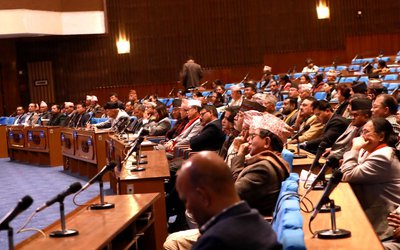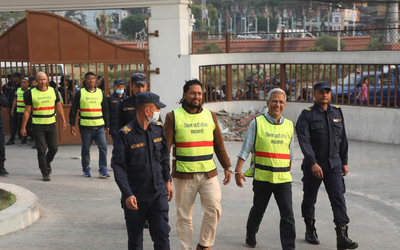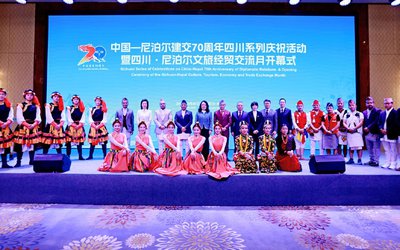More on News





Freshwater Action Network South Asia (FANSA) welcomed the Kathmandu Declaration which came out of the fifth South Asian Conference on Sanitation, SACOSAN V.
Welcoming the spirit of the declaration, FANSa but urges that the commitments made by South Asian governments are realized to ensure accelerated and sustainable progress on sanitation and hygiene to avoid the loss of lives, particularly of the children under five, due to lack of sanitation.
Murali Ramisetty, FANSA Regional Convener, highlighted the importance of next steps: said, “the overall SACOSAN V process was very good with active participation of civil society and other stakeholders. Now the Governments need to make a whole hearted effort to translate the spirit of commitments into action, particularly in recognizing and realizing the Human Right to sanitation. This right is essential to ensure justice and equality for the poor and marginalized.”
According to a press release, FANSA welcomes the priority given to equity and inclusion issues and South Asian governments’ commitment to reach the poor and marginalized. FANSA particularly welcomes the commitment to reaching out to the urban poor regardless of land tenure which has been a stumbling block in previous service delivery efforts. Similarly, it also welcomes the reconfirmation of previous SACOSAN commitments, especially the specific reference to the Human right to sanitation. FANSA urges SAARC countries to ensure that this right is included as a legally enforceable right in national legislative frameworks. Congratulating South Asian governments on their detailed commitment to monitoring progress against SACOSAN declarations, they stressed the needs to be based on robust monitoring systems and standards and indicators at national and sub-national level.
FANSA also urges governments to systematically report against SACOSAN V as well as previous commitments in SACOSAN VI to ensure mutual accountability and a clear understanding of progress on increasing sustainable access to sanitation for all. The group welcomes governments’ renewed and holistic understanding of sanitation as including issues of climate change planning, environmental considerations and disaster risk reduction. This, however, requires resources for capacity development at national level to ensure this commitment becomes a reality.
Civil society is committed to supporting governments in the realization of these commitments. As a first step, FANSA will disseminate commitments at the grassroots level to ensure citizens are aware of their government’s promises to tackle the sanitation crisis. Civil society is also committed to continuing to monitor progress and hold decision makers to account.
FANSA actively participated in SACOSAN V by bringing the voice of those most in need, the poor and marginalized, to this regional decision making forum. Building on strong evidence highlighting the sanitation challenges faced by the urban poor, excluded and marginalized groups such as people with disabilities, women and children,
Murali said,” I am glad that SACOSAN V has emphasized in reaching the services to the poor and most marginalized communities and more emphasis on making the sanitation services inclusive particularly focusing on the needs of the people with disability”.







